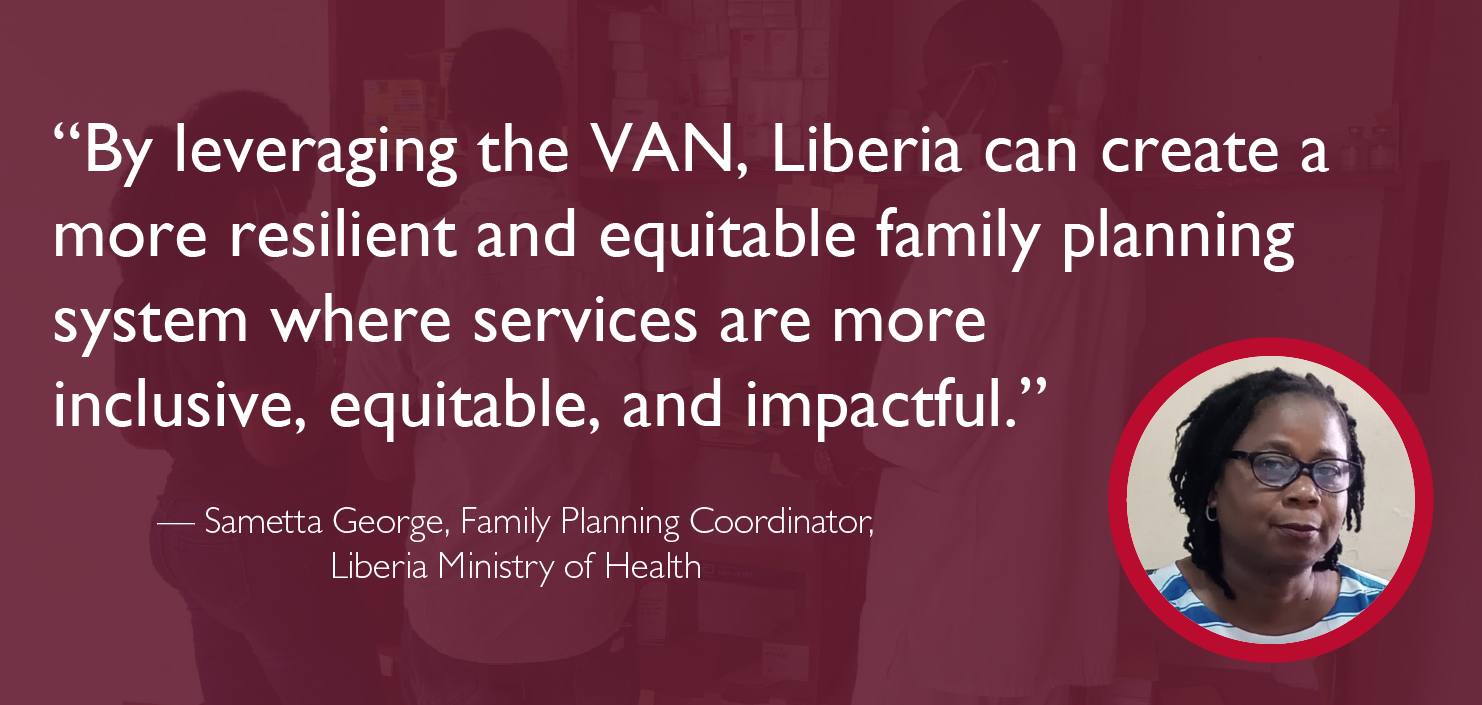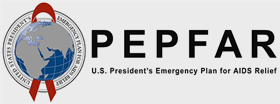
In the quiet early hours of Harper City, Maryland County in Liberia, Sametta George sits down to write her “to-do” list for the day. As the city stirs awake, Sametta steps out knowing her day as Liberia’s Family Planning Coordinator will veer far from her carefully laid plans. After 23 years of navigating Liberia’s healthcare system—from clinics to national leadership—she has learned to expect the unexpected. Yet, with each challenge, her resolve to make a difference only deepens.
Sametta’s passion for public health is rooted in her upbringing. As a child, she watched her mother keep essential supplies on hand to help neighbors in need. “My mom was the driver for my desire to help others,” Sametta shares. “Those moral lessons and acts of service inspired my journey into nursing and eventually public health leadership.” Today, Sametta leads efforts to ensure that women across Liberia have access to family planning products and services— services she views as vital to women’s health, empowerment, and economic stability.
But the road to ensuring contraceptive access hasn’t been easy. In the past decade, without adequate visibility into the family planning supply chain, the Government of Liberia encountered significant supply management challenges and needed a way out. Sametta described the system as one fraught with frequent stockouts and overstocks. Without reliable data to guide supply planning and distribution, some clinics would run out of critical contraceptive supplies while others sat on unused stock, leading to wasted resources and unmet needs. “To overcome these issues, having a visibility and analytics network was crucial,” she concluded.
Determined to address these gaps, Liberia’s Ministry of Health, supported by the USAID Global Health Supply Chain Program-Procurement and Supply Management (GHSC-PSM) project, joined the Global Family Planning Visibility Analytics Network (GFPVAN or VAN). Hosted and managed by the Reproductive Health Supplies Coalition, the VAN harmonizes data from multiple sources, enabling users to forecast and prioritize supply needs, leading to more timely and cost-effective delivery of contraceptives, and reaching more people with the right family planning product at the right time. Dr. Nowiah Gorpudolo-Dennis, Liberia’s Director of Reproductive Health, highlights its impact: “The VAN provides a secure platform for exchanging data and information. If Liberia had not subscribed to the VAN, the country’s communication processes would likely be less efficient and more fragmented.”
The platform provides reliable data on stock levels, orders, and shipment schedules, enabling supply chain actors like Sametta to make informed decisions. Today, she can forecast needs, track shipments, and analyze trends to prevent stockouts. “Now, I can plan ahead,” she says. “Access to the VAN has made it easy to review data on stock status and shipment information to inform supply plans and avoid expiries and wastage.”
Yet, Sametta knows the journey isn’t over. She envisions a resilient family planning program that leaves no woman behind, regardless of her location or circumstances. “By leveraging the VAN, Liberia can create a more resilient and equitable family planning system where services are more inclusive, equitable, and impactful,” she reflects.
As Liberia moves toward a more connected and data-driven future, platforms like the VAN are paving the way for digital transformation. Dr. Nowiah also believes that the VAN holds significant potential for improving the county’s digital infrastructure, enabling seamless data-sharing and secure information exchange between government agencies and partners. “As Liberia continues to build its digital economy and improve public service delivery, the VAN can play a key role in facilitating collaboration, improving transparency, and supporting national development goals,” she says.
Sametta’s and Dr. Nowiah’s reflections on the value of the VAN are a testament to Liberia’s unwavering commitment to its people. It is a reminder that behind every technology, policy, and health program are the people who make them work—the nurse who patiently listens to her client’s needs, the coordinator who analyzes data to ensure people have the health products they need, the director who makes critical decisions, and the mother who plans her family’s future.
To learn more about Liberia’s journey with the VAN and the benefits of joining the network, read this case study.


